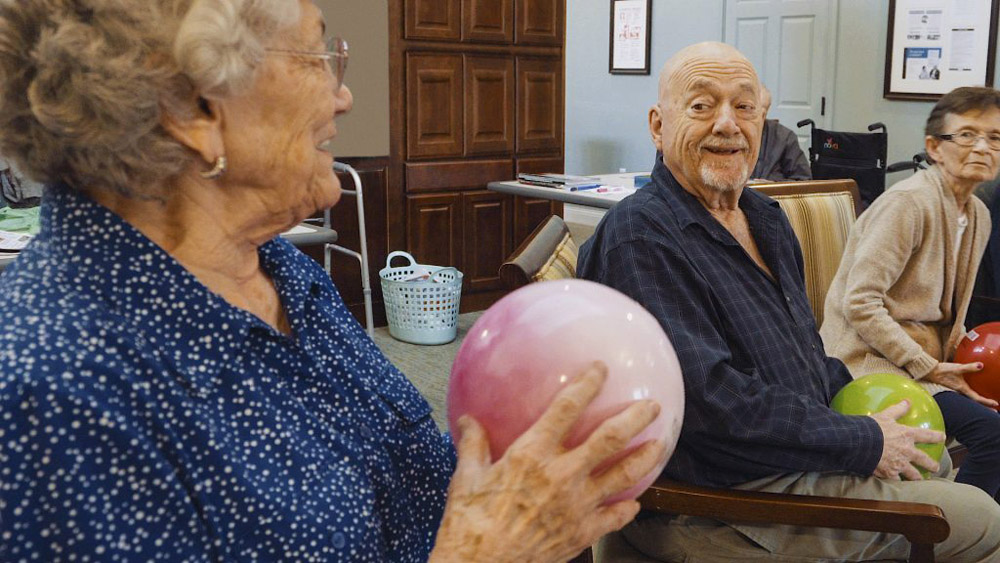Five Things You Didn’t Know About Memory Care Communities
Wiki Article
Discover Compassionate Memory Care: Enhancing Top Quality of Life for Loved Ones
The trip of looking after a loved one with cognitive disabilities offers unique difficulties that can greatly impact family dynamics and emotional wellness. Thoughtful memory care facilities provide an organized, encouraging setting designed to deal with these difficulties while improving the top quality of life for residents. By concentrating on personalized care and significant involvement, these centers not just boost those influenced by conditions like Alzheimer's and dementia however likewise supply tranquility of mind for family members. As we discover the crucial elements of compassionate memory care, it becomes clear that understanding these alternatives can make a considerable difference in the lives of all entailed.
Understanding Memory Care
Recognizing memory care entails identifying the specific assistance and services made to help people with cognitive impairments, such as Alzheimer's disease and various other forms of mental deterioration. Memory care centers concentrate on producing a secure and structured setting that promotes the wellness of homeowners while addressing their one-of-a-kind cognitive challenges.Key components of memory care consist of educated staff who are knowledgeable regarding the intricacies of dementia and associated problems. These professionals utilize evidence-based techniques to enhance cognitive function and keep dignity with embellished care plans. The physical environment is likewise customized to minimize complication and promote experience, often featuring safe locations to prevent wandering. Boutique Memory Care Charlotte.Moreover, memory care stresses social engagement and significant tasks that boost cognitive abilities and foster connections amongst homeowners. This approach recognizes the value of keeping social communications to combat isolation commonly experienced by people with memory loss.Families play an important function in memory care, as their involvement assists develop an encouraging network that improves the lives of residents. By understanding the specialized nature of memory care, households can make educated decisions to improve the high quality of life for their liked ones dealing with cognitive problemsKey Features of Compassionate Care
Compassionate care in memory care setups is identified by an all natural technique that prioritizes the emotional and psychological health of homeowners. Secret functions of this method include embellished care strategies tailored to each homeowner's one-of-a-kind requirements, preferences, and biography. This personalization fosters a feeling of identification and belonging, which is necessary for those experiencing cognitive decline.Another important feature is the visibility of experienced team that are not only experienced in mental deterioration care however also thoughtful and understanding. These caretakers take part in purposeful interactions, using strategies such as validation treatment to get in touch with residents and lower feelings of frustration or anxiety.Additionally, thoughtful care environments focus on sensory stimulation and healing activities that reverberate with locals' passions. This may consist of art therapy, songs sessions, and memory activities, all made to improve cognitive feature and emotional connection.Furthermore, family members involvement is motivated, permitting liked ones to get involved in care activities and sustain their relative's psychological needs. Eventually, the vital functions of thoughtful care create an atmosphere where homeowners feel risk-free, valued, and recognized, greatly improving their quality of life.Benefits for Homeowners and Households

Activities That Foster Engagement
Significant tasks play an important duty in cultivating engagement among locals in memory care settings. These activities not only promote cognitive feature yet also promote social interaction, emotional wellness, and a sense of function. Tailored useful source programs that think about citizens' passions and capacities are important for taking full advantage of involvement and enjoyment.Creative quests, such as paint, crafting, or music therapy, encourage self-expression and can evoke pleasurable memories. Structured workout sessions, including chair yoga or walking groups, boost physical wellness while giving possibilities for socializing. Furthermore, reminiscence therapy, which involves discussing previous experiences and significant life events, can strengthen connections in between citizens and caregivers.Incorporating interactive games, puzzles, and even horticulture can additionally promote cognitive interaction and foster teamwork amongst citizens. Consistently set up group activities, such as flick evenings or themed celebrations, create a sense of area, enabling residents to construct relationships and share experiences.Ultimately, the implementation of diverse tasks customized to specific preferences is important in memory care. By advertising involvement via meaningful shows, centers can greatly improve the quality of life for residents, guaranteeing they feel valued and connected within their area.Choosing the Right Memory Care Center
Selecting a memory care center involves mindful consideration of numerous elements that influence the wellness of homeowners. Begin by examining the center's general setting, ensuring it is secure, welcoming, and made to decrease complication. Look for areas that urge social interaction while supplying personal privacy for personal reflection.Next, analyze the qualifications and training of the personnel. Caring for individuals with memory problems requires specialized understanding. Validate that personnel obtain recurring training in dementia care and employ caring interaction techniques.Additionally, consider the series of solutions supplied, such as individualized care plans, restorative tasks, and assistance for relative. A facility that highlights all natural care can greatly enhance the high quality of life for residents.Visit prospective centers to observe communications in between team and homeowners, and inquire about their approach to engaging those with memory difficulties. Inspect evaluations and look for suggestions from medical care specialists or regional assistance groups.Lastly, take into consideration the center's location and accessibility for family check outs, as routine get in touch with can enhance locals' emotional well-being. By taking these elements into account, you can make a well-informed decision that best sustains your enjoyed one's demands.Often Asked Concerns
What Certifications Do Memory Care Personnel Generally Possess?
Memory care staff typically hold qualifications that consist of specialized training in mental deterioration and Alzheimer's care, in addition to accreditations in emergency treatment and mouth-to-mouth resuscitation. Lots of have backgrounds in nursing or social work, providing them with essential abilities in individual evaluation and emotional assistance. Dementia Care. Furthermore, ongoing education and learning in behavioral management strategies and communication techniques is usual, making sure team continue to be skilled at dealing with the unique demands of individuals with cognitive problems while promoting a supportive settingExactly How Can Households Join Their Loved One's Care?

What Is the Expense Range for Memory Care Services?
The cost array for memory care solutions can vary significantly based on factors such as area, center features, and level of care required. Usually, family members may expect to pay between $4,000 and $8,000 each month. Added services, specialized programs, and personal accommodations can better affect rates. Alzheimer’s Care. It is suggested for family members to thoroughly research and check out centers to comprehend what is included in the charges and explore monetary help options availableAre There Particular Dietary Options Available for Locals?
Yes, many memory care centers supply tailored dietary choices to meet the particular nutritional requirements of residents. These options commonly consider numerous nutritional limitations, such as diabetes, heart health and wellness, or allergies. Facilities usually utilize qualified dietitians to produce dish plans that promote general health while thinking about specific preferences. Furthermore, family members are generally encouraged to take part in discussions concerning nutritional choices to ensure that their enjoyed ones' tastes and demands are valued.How Are Emergencies Taken Care Of in Memory Care Facilities?
Emergencies in memory care facilities are handled through established methods designed to guarantee resident security and speedy response. Personnel are educated in emergency situation treatments, consisting of emergency treatment and discharge strategies - Memory Care Charlotte. Facilities conduct routine drills to plan for numerous scenarios, such as medical emergency situations, fires, or all-natural disasters. Furthermore, interaction systems remain in area to alert personnel and emergency situation solutions without delay, guaranteeing that citizens obtain prompt focus and care during vital circumstancesReport this wiki page